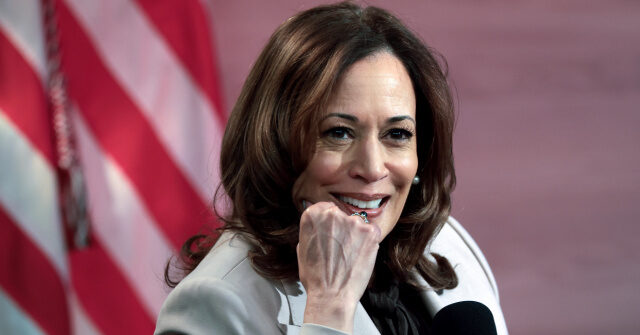Vice President Kamala Harris recently addressed concerns regarding her candidacy for reelection, emphasizing the need for continued efforts to alleviate economic challenges that have intensified during the Biden-Harris administration. In an interview with NBC News, Harris candidly acknowledged that there was a significant rise in costs—approximately 20 percent—during their time in office, and she believes an additional four years in power would be essential to fully address these issues. Specifically, Harris highlighted her pivotal role in the passage of the Inflation Reduction Act, which many critics argue may have contributed to inflation rather than curbing it. When pressed about whether the previous four years would hinder her campaign, Harris reassured viewers that her approach would not simply mirror the Biden administration, as she aims to bring her unique experiences and perspectives to her policy initiatives.
Harris stated that her plans would focus primarily on reducing living costs for Americans, arguing that her proposals are tailored to address the very issues that voters are concerned about. She aims not only to assist people in getting by but also to empower them to thrive. This conviction comes from a desire to move beyond the current economic hardships faced by American families. Her proposals suggest a comprehensive strategy to bring both immediate relief and long-term financial stability to households across the nation. Harris positioned herself as a candidate keenly aware of the complexities of the current economic landscape and committed to making tangible improvements.
Recent polling data from Gallup reveals a worrying sentiment among Americans, with 52 percent indicating they feel worse off today than they did four years ago during Donald Trump’s presidency. This public discontent highlights a growing dissatisfaction with the current administration and the economic turmoil that has characterized the past few years. Notably, the Biden-Harris administration faced numerous challenges, including the COVID-19 pandemic and its resultant economic fallout, which many citizens believe adversely impacted their financial well-being even as they were initially hopeful for recovery.
Looking back, it is essential to recognize that four years ago, the nation was grappling with unprecedented challenges—the ongoing pandemic, which fundamentally altered daily life, as well as significant economic uncertainties. Despite these adversities, many Americans at the time felt more secure in their financial situations than they do now. The stark contrast between this sentiment and the current reality under the current administration speaks volumes about the effectiveness of the policies instituted during Harris and President Biden’s tenure.
The Biden-Harris administration has faced a myriad of crises that have contributed to an overall sense of unease among the electorate. Events such as Russia’s invasion of Ukraine, ongoing conflicts involving Hamas and Iran, and the surge in illegal border crossings have compounded existing worries about national security and economic stability. Additionally, the withdrawal from Afghanistan and the complications that arose from it left many Americans feeling vulnerable. These events have undoubtedly shaped public perception of the administration’s effectiveness in navigating both domestic and foreign policy challenges, leading to questions about confidence in the leadership and its ability to steer the country toward stability.
In conclusion, Vice President Harris’s call for another term hinges on a commitment to addressing rising costs and improving the overall economic landscape for Americans. As she seeks to distinguish herself from the previous administration’s strategies, she emphasizes her dedication to formulating policies that address the current concerns of the populace. However, with significant public skepticism reflecting economic despair, Harris’s stance illustrates a complex political landscape—one of both hope and doubt as the nation heads into a new electoral cycle. The upcoming race will ultimately serve as a referendum not only on her proposals but also on the broader implications of the Biden-Harris administration’s policies in a time defined by turbulence and uncertainty.

